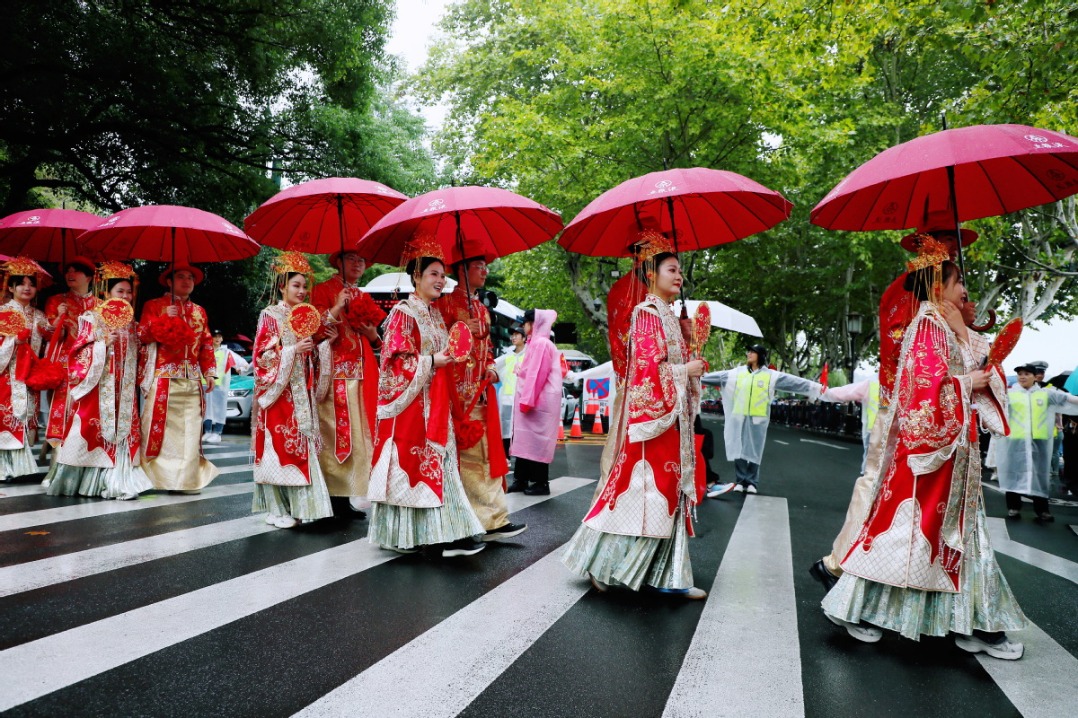Momentum injector


As core forces in South-South cooperation, China and Brazil should strengthen their coordination to promote a collective identity for the Global South
Editor's note: The world has undergone many changes and shocks in recent years. Enhanced dialogue between scholars from China and overseas is needed to build mutual understanding on many problems the world faces. For this purpose, the China Watch Institute of China Daily and the National Institute for Global Strategy, Chinese Academy of Social Sciences, jointly present this special column: The Global Strategic Dialogue, in which experts from China and abroad will offer insightful views, analysis and fresh perspectives on long-term strategic issues of global importance.
The rise of the Global South is the result of multiple interacting factors. With the goal of Global South cooperation having subtly changed from "driving growth through unity" to "driving change through coordination", the Global South needs to effectively address challenges in order to achieve broader cooperation and gain greater influence.
The Global South has established quite a few regional cooperation mechanisms and forums, but they are scattered and fragmented, making it imperative to build more comprehensive mechanisms. The Global South comprises countries with different political systems, levels of economic and social development, and traditional cultural values. To achieve more extensive and effective synergy, the Global South needs to explore a multi-engine approach.
China and Brazil are respectively the largest developing countries in the Eastern and Western hemispheres, and the most representative members of the Global South. The key global concerns for the Global South — autonomy, development, security, equity and justice — are also prioritized in China-Brazil bilateral cooperation, especially in their multilateral policies.
China-Brazil ties now possess the characteristics of a major-power relationship. This is due not only to the high degree of alignment between their interests and the mutually beneficial nature of their relationship, but also to the increasingly significant spillover effects of their cooperation. Therefore, China and Brazil share a responsibility to uphold the rise of the Global South and the potential to lead its development.
First, China and Brazil should actively respond to the challenges facing the Global South. On the one hand, they should strengthen their respective regional cooperation mechanisms. Only when more effective South-South cooperation is formed in different regions will there be more diverse support for the Global South and a stronger synergy.
On the other hand, they should enhance interconnection within the South-South cooperation network. China and Brazil are core forces in South-South cooperation, and both have established multidimensional and intersecting South-South partnership networks. While promoting their own diplomatic goals, they need to strengthen their coordination on issues of common concern to the Global South, promoting the alignment among different mechanisms.
Meanwhile, China and Brazil should expand consensus to promote a collective identity for the Global South. They should take the initiative in Global South dialogues, so the international public opinion about the Global South will not be skewed by developed countries.
Second, China and Brazil should take the lead to drive Global South cooperation in key areas of global governance. The rise of the Global South is driven by structural changes in the international system. These changes are reflected both in the power dynamics within the global power structure, where the collective strength of the Global South is comparable to that of the Global North — and in some cases, even exceeds it — and in the greater potential and feasibility for reforming the global governance system. The path of co-consultation, co-construction, and co-sharing is not only desirable but also inevitable. In other words, the rise of the Global South is driven by changes in the international landscape, and it is also a key factor in promoting a more reasonable evolution of the global order.
Therefore, cooperation between China and Brazil in global governance not only fully reflects the comprehensive, strategic and global nature of their bilateral relationship but also injects strong momentum into Global South cooperation.
In a world with increasing geopolitical and economic uncertainties, what matters most to the Global South is practical cooperative actions. In this regard, the interaction between China and Brazil is demonstrative.
For instance, Brazil acknowledges China's significant role within the Global South, effectively countering the distorted narrative from the West that seeks to exclude China from the Global South. During his visit to China in 2023, Brazilian President Luiz Inacio Lula da Silva proposed to work with China to promote a "Peace Club" aimed at peacefully resolving the Ukraine crisis, emphasized the idea of "de-dollarization" in the reform of the international monetary system, and issued the Brazil-China Joint Statement on Combating Climate Change. Particularly noteworthy is that in May 2024, the two countries reached a six-point consensus on political settlement of the Ukraine crisis, which received widespread attention from the international community, including the Global South.
All of these demonstrate that China and Brazil share a consistent global perspective on security, development and global governance, and their aligned positions give a substantive push for reforming the global governance system.
On Aug 15, President Xi Jinping and President Lula exchanged congratulatory messages on the 50th anniversary of the establishment of diplomatic relations between China and Brazil. President Xi emphasized that while promoting the development and revitalization of their respective countries, China and Brazil have also played important roles in world peace, stability, prosperity and development. President Lula pointed out that Brazil-China relations are increasingly important for building a multipolar world order as well as more just and effective global governance, and play an underpinning role in the stability and predictability of the two countries and the world.
Based on this political mutual trust and shared recognition of interests, there is broad space for expanding cooperation in global governance between China and Brazil. The positive interaction between the two countries will not only promote consensus within the Global South but also play a pivotal role in driving cooperation among the group.
The author is a senior research fellow of the Institute of Latin American Studies at the Chinese Academy of Social Sciences and a professor at the School of International Politics and Economics at University of Chinese Academy of Social Sciences. The author contributed this article to China Watch, a think tank powered by China Daily.
Contact the editor at [email protected].


































